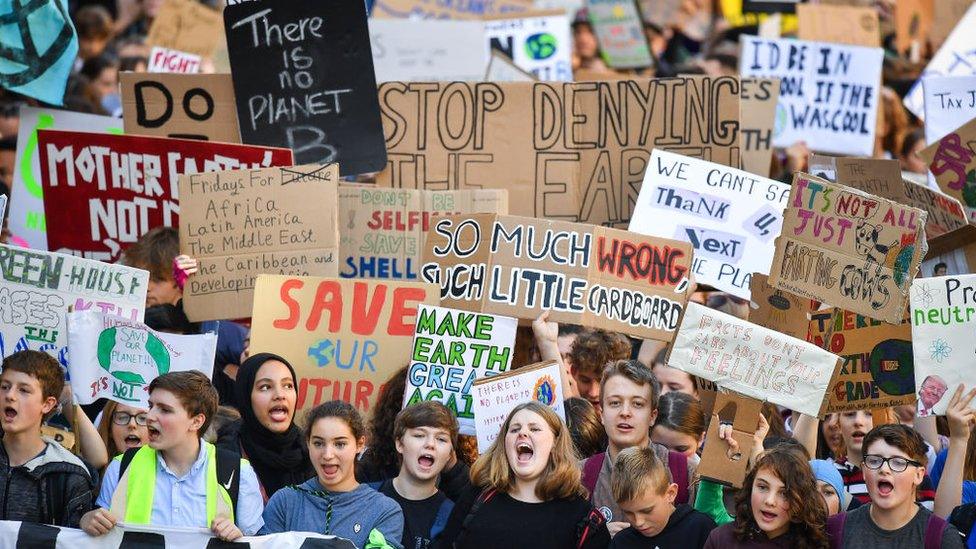Scotland's economic recovery should 'prioritise broadband over roads'
- Published

The committee says there is an opportunity to "embed new social norms" like home-working
The Scottish government's economic recovery plan should prioritise broadband investment over roads, the Committee on Climate Change has said.
The committee has written to ministers after Environment Secretary Roseanna Cunningham requested advice on a "green recovery" for Scotland.
It suggested six areas the government should focus on, including embedding fairness as a core principle.
The advice has been shared with the UK prime minister.
It has also been shared with the first ministers of Wales and Northern Ireland.
The Scottish government has delayed publication of its updated Climate Change Plan from April to the end of the year because of the coronavirus pandemic.
The plan will detail measures to reach a new target of reducing Scotland's net greenhouse gas emissions by 75% by 2030.
The long-term target is to reach net-zero by 2045.
Shifting behaviours
The chairman of the Committee on Climate Change (CCC), Lord Deben, praised the delay and welcomed a pledge to reframe the plan "in the context of a green pathway to aid an economic recovery that's in line with Scotland's statutory net-zero targets".
The committee's six recommendations are:
Use climate investments to support the economic recovery and jobs
Lead a shift towards positive long-term behaviours
Tackle the wider "resilience deficit" on climate change
Embed fairness as a core principle
Ensure the recovery does not "lock-in" greenhouse gas emissions or increased climate risk
Strengthen incentives to reduce emissions when considering fiscal changes
Chief executive of the CCC, Chris Stark, told BBC Scotland: "Next year, Glasgow will host the vitally important COP26 climate summit. That is the moment for Scotland to demonstrate its international leadership on climate change, and showcase the many steps we are already taking here at home to tackle the climate crisis.
"The climate risks we face as a global society are still urgent. Scotland has a unique opportunity, alongside the rest of the UK, to drive climate action up the international agenda - and demonstrate the benefits of international co-operation coming out of the Covid-19 crisis."
The committee says there is now an opportunity to "embed new social norms" such as home-working, which cut emissions by reducing the amount of vehicles on our roads.

Protestors took part in a global climate strike in Edinburgh last September
It says the Scottish government can lead the way by encouraging its own staff to work from home and by prioritising broadband investment over spending on the road network.
Environment secretary Roseanna Cunningham said: "While we remain in lockdown, in anticipation of a 'new normal', we have a chance to re-imagine the Scotland around us, and to begin building a greener, fairer and more equal society and economy. Our starting point has most definitely changed but our ambitions need not.
"I am grateful for the committee's early input into our green recovery plans and I look forward to the committee publishing its full advice in due course."
Resilient economy
The committee says the response to the pandemic has disproportionately affected the same lower income groups and younger people who face the largest long-term impacts from climate change.
It says it is important that jobs being lost or threatened are replaced by those created by a newer, resilient economy.
Tom Ballantine, from Stop Climate Change Scotland, said: "It is essential that tackling climate change and meeting our climate commitments are at the top of the agenda when governments think about economic recovery.
"Governments face difficult challenges in the months and years ahead in trying to repair the recent damage done to the economy. The government must look to the future and the sort of Scotland we want to become. We have to use this opportunity to invest in those parts of the economy that put us on the path to being a low carbon, fairer nation."